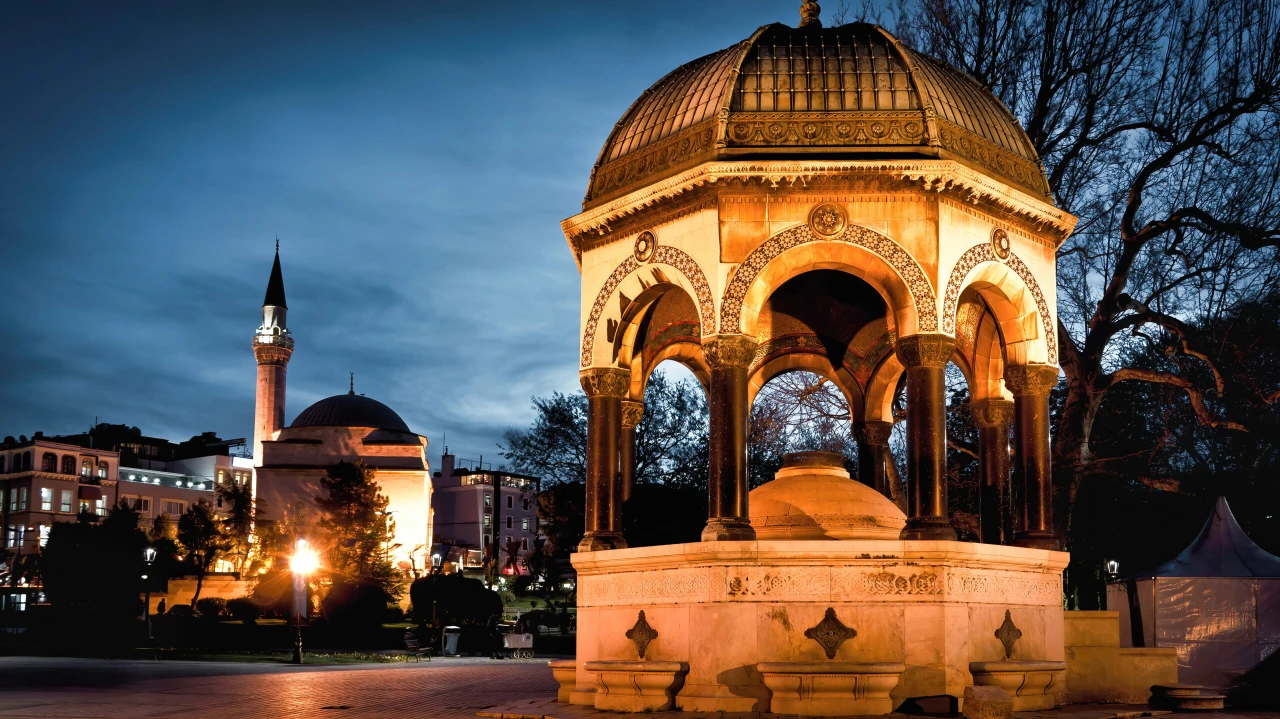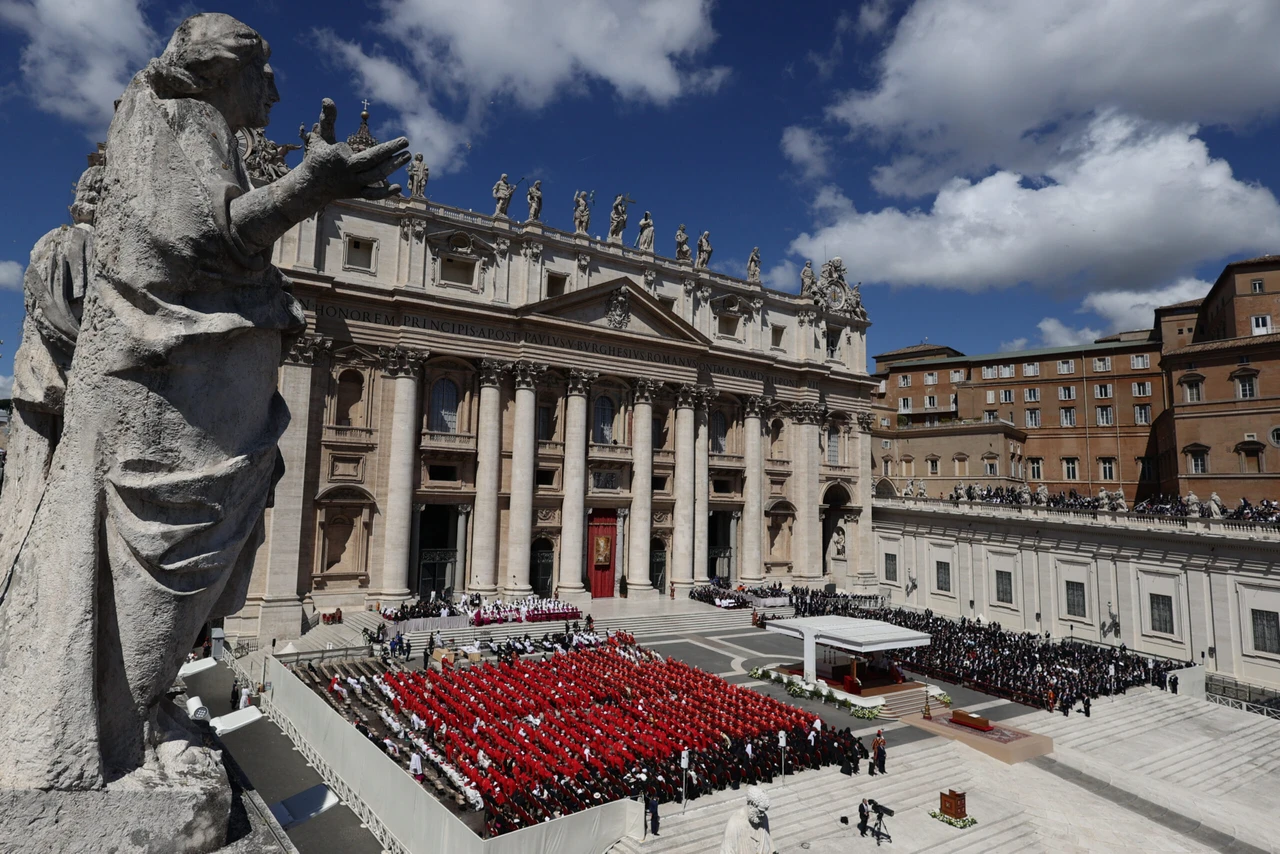Sacred altar, figurines unearthed in Türkiye’s Phaselis Ancient City
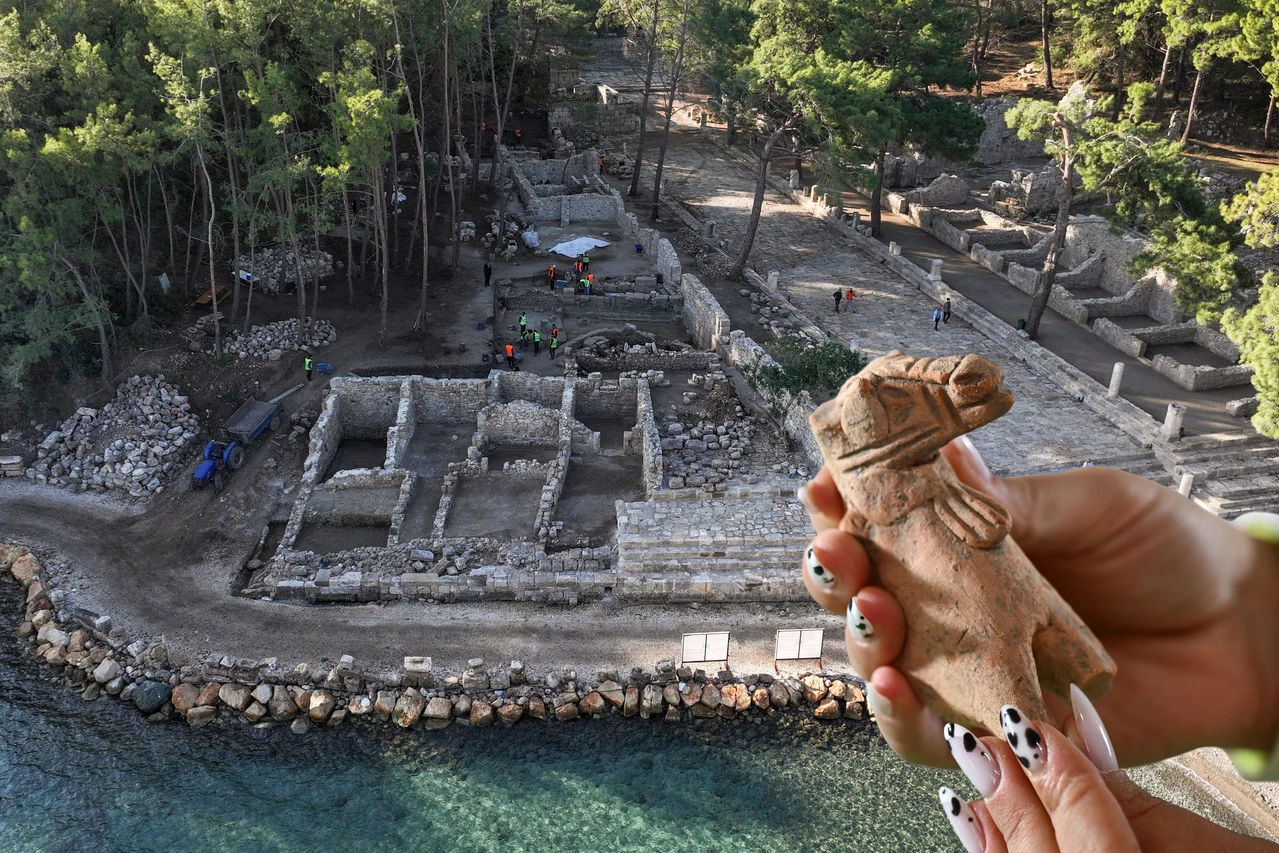 An aerial view of excavations works at the ancient city of Phaselis as an altar structure (altar) thought to be dedicated to Apollo and small votive sculptures, including human and lion, are found during the excavations in Kemer district of Antalya, Türkiye, November 28, 2024. (AA Photo)
An aerial view of excavations works at the ancient city of Phaselis as an altar structure (altar) thought to be dedicated to Apollo and small votive sculptures, including human and lion, are found during the excavations in Kemer district of Antalya, Türkiye, November 28, 2024. (AA Photo)
In the ongoing excavations at Phaselis Ancient City, located in Kemer, Antalya, a sacred altar dedicated to Apollo and votive offering figurines, including depictions of humans and lions, have been uncovered.
These discoveries, dating back to the 7th century B.C., shed new light on the early history of this significant site in ancient Pamphylia.
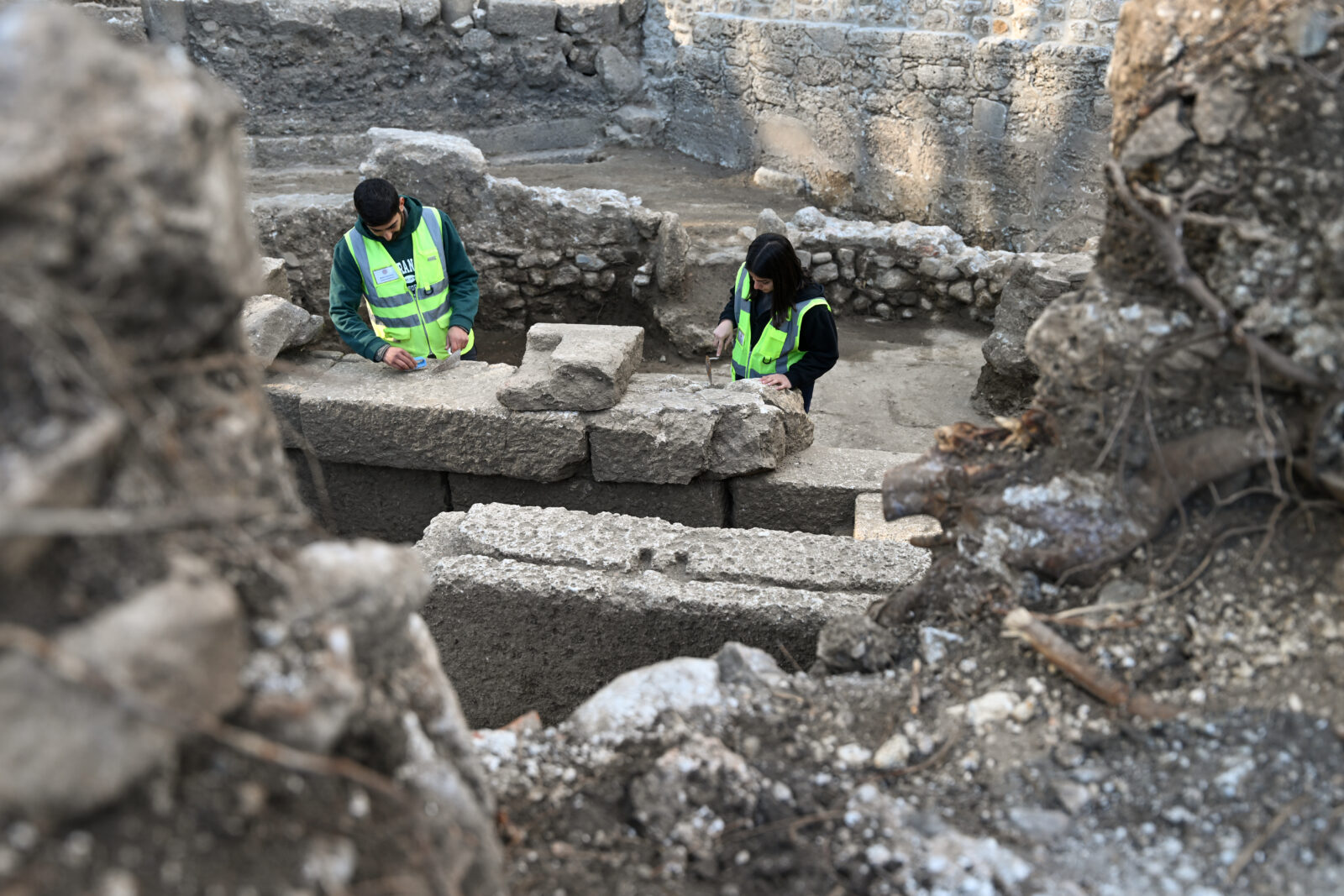

Excavation led by Professor Erdogan Aslan reveals exceptional finds
The excavation team, led by Professor Erdogan Aslan, has made groundbreaking discoveries in Phaselis, a city that has historical significance dating back to around 690 B.C. Phaselis is notable for being the last city of Lycia, located on the border with Pamphylia, and is one of the rare cities with three harbors that has yielded remnants from the Persian, Alexander, and Roman periods.
Professor Aslan, speaking to Anadolu Agency, highlighted the recent advancements in the excavations, which have gained momentum in the last two years due to the support of Minister of Culture and Tourism, Mehmet Nuri Ersoy. “The discoveries we are making here are extraordinarily rare and could occur only once in a century or two,” he stated. “These findings are incredibly valuable in illuminating the early history of the city.”
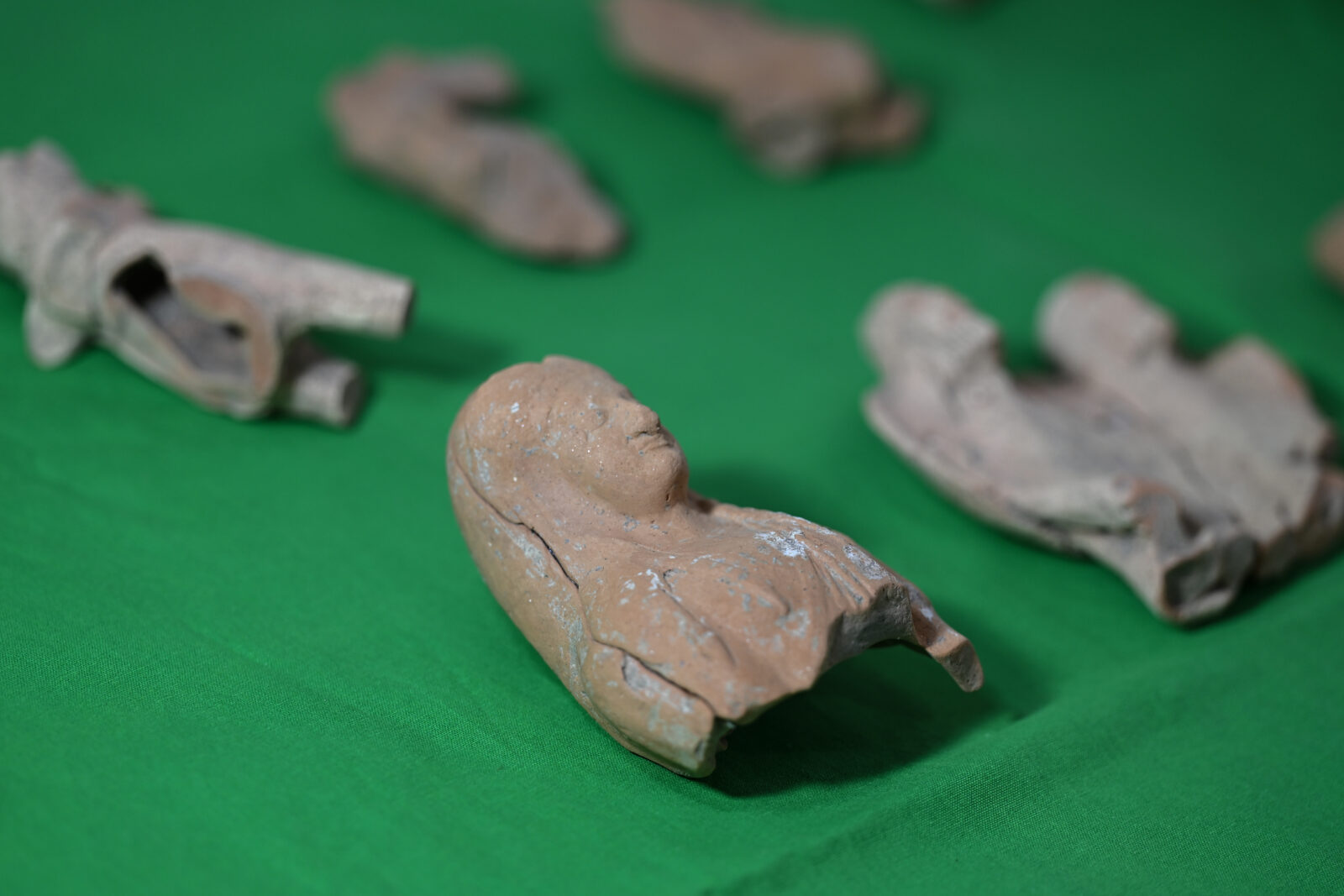
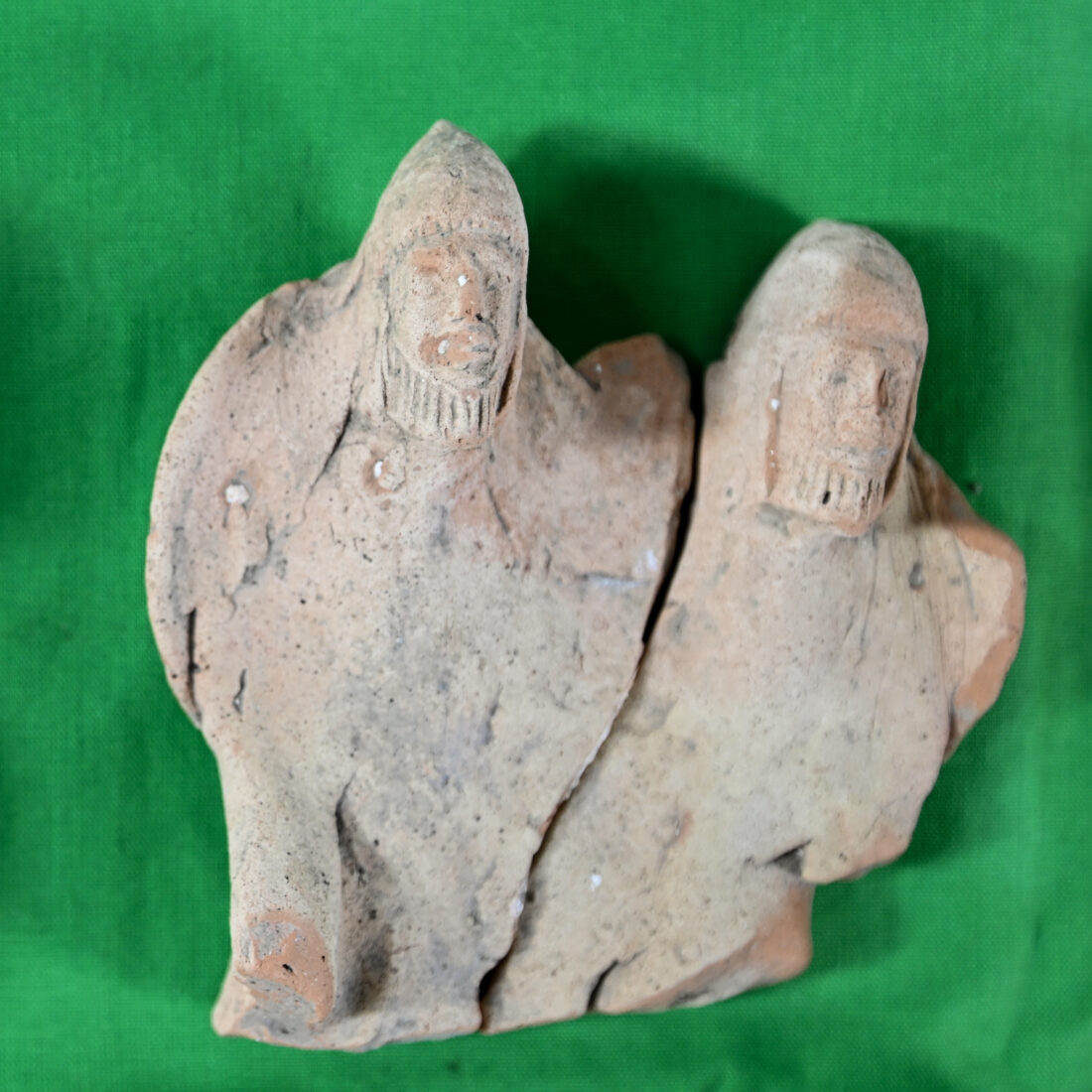
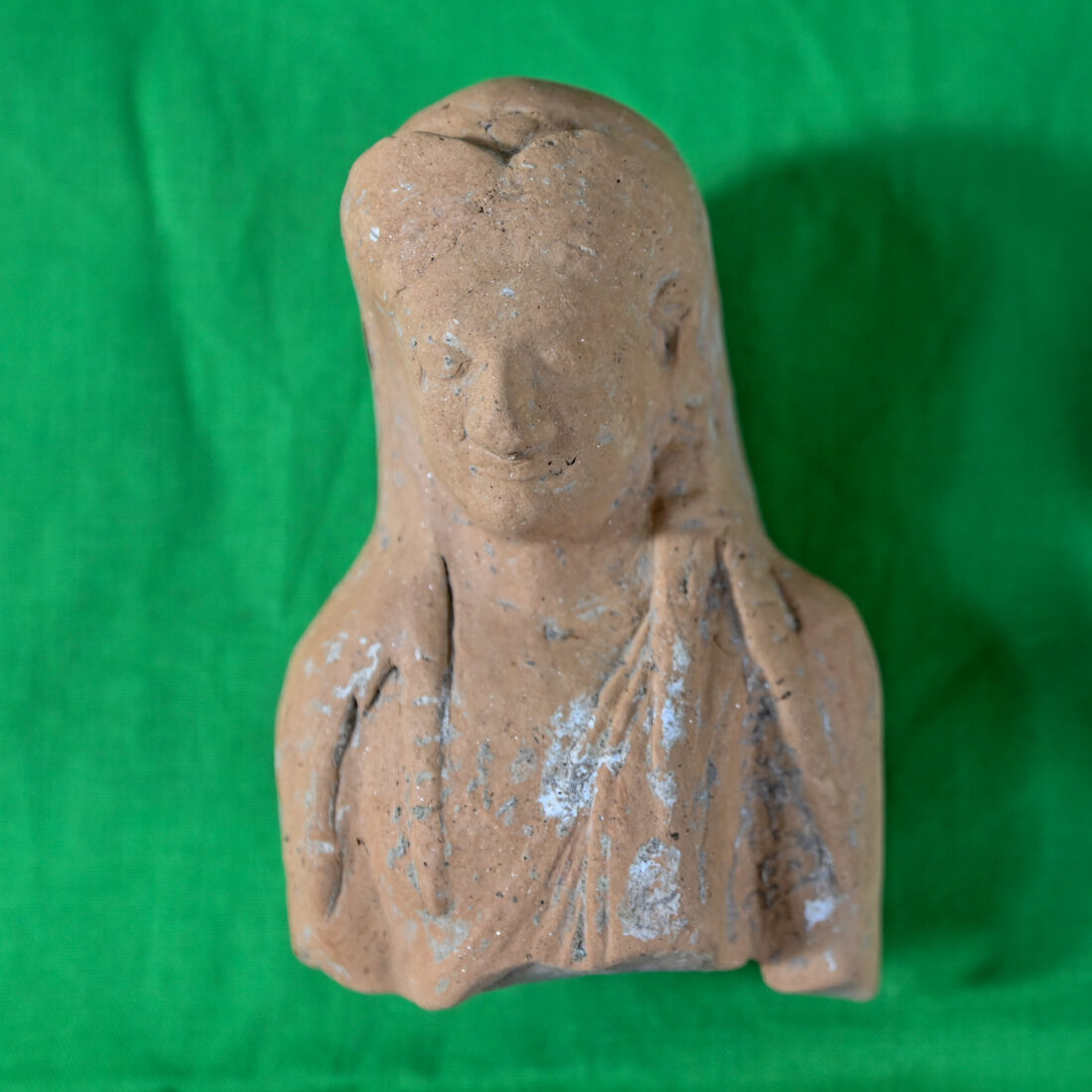
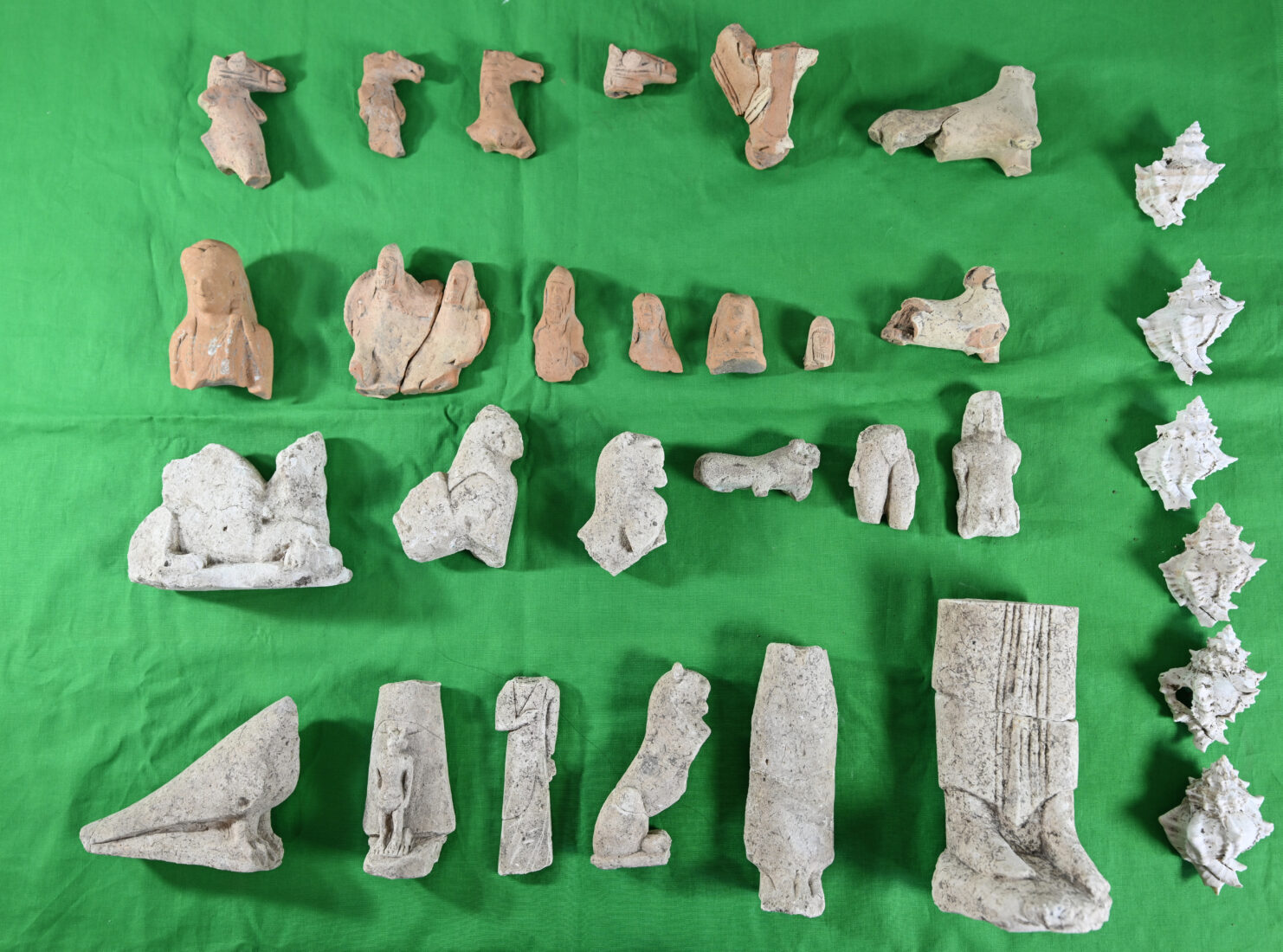
Votive offering figurines uncovered at Phaselis Ancient City’s sacred altar
Among the newly discovered artifacts, archaeologists uncovered small votive offering figurines that were likely broken and discarded as part of ritual offerings to the gods. These figurines depict human, lion, horse, and warrior figures, and were found near an altar believed to have been dedicated to Apollo. Professor Aslan explained that these findings, dating to approximately 620 B.C., offer a rare glimpse into ancient religious practices.
The figurines, made of stone or ceramic, were found broken, a common practice in ancient times when offerings were made to the gods by breaking and discarding items in sacred spaces. The location of the altar, adjacent to the ancient harbor, suggests that it may have been a site where travelers and merchants would offer prayers and votives for safe passage across the seas.
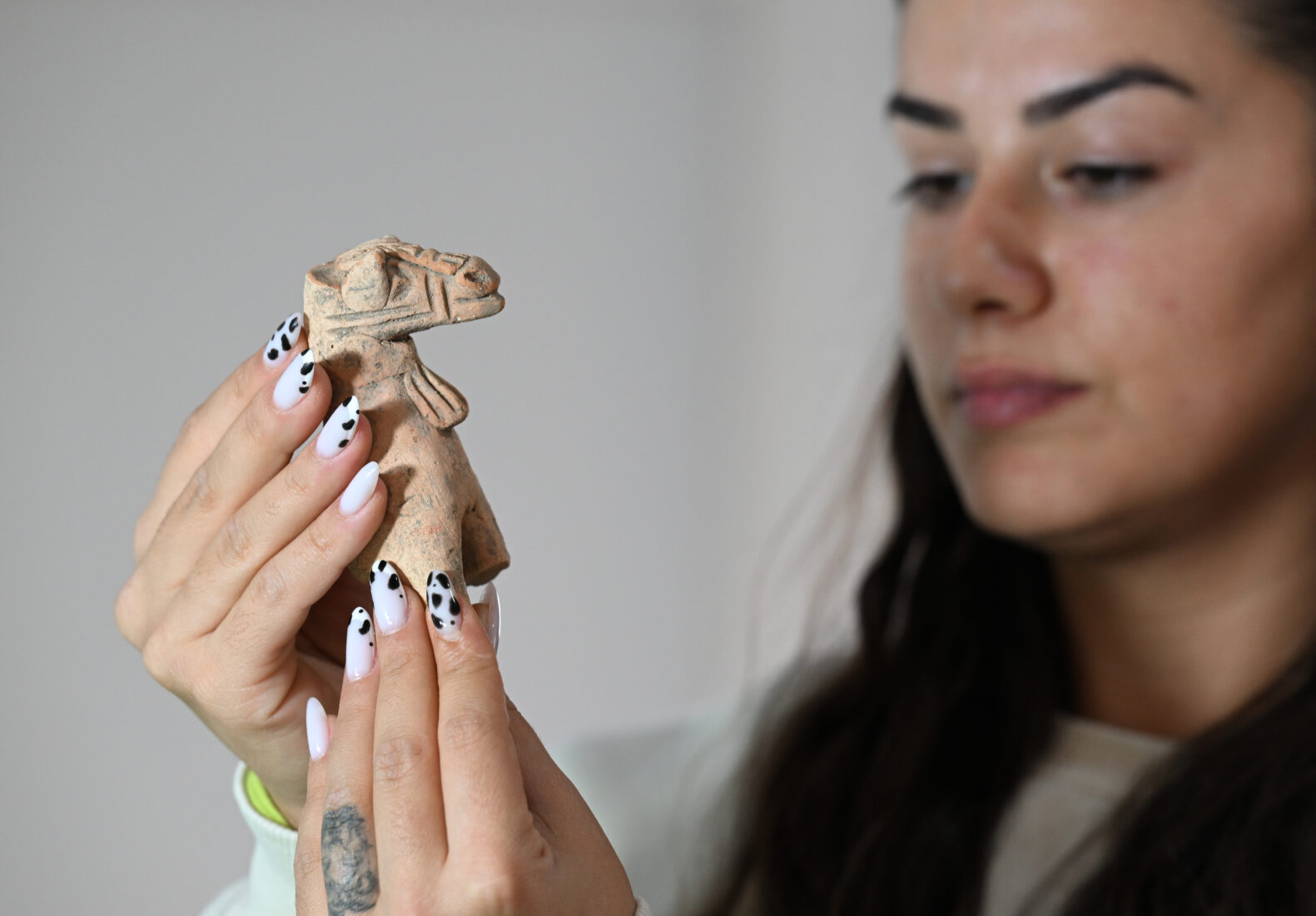

Sacred site highlights early connections between Phaselis, Cyprus, and Egypt
Further analysis of the finds revealed that the artifacts likely have origins in Cyprus and Egypt, indicating early trade and cultural interactions between Phaselis and these regions. Professor Aslan noted that the finds corroborate the accounts of Herodotus, who mentioned in the 7th century B.C. that cities like Phaselis were involved in the establishment of the Hellenion in Naukratis, Egypt. “These artifacts suggest that visitors from Cyprus and Egypt may have come to Phaselis to visit the sacred site and leave their offerings,” Aslan explained.
The inscriptions and artifacts point to the altar being dedicated to Apollo, providing further evidence of the city’s religious practices and its connections to other ancient Mediterranean cultures.
Continued excavations promising new discoveries
The excavation team, under the leadership of Professor Aslan, is committed to continuing its work at Phaselis without interruption. The team hopes that future excavations will reveal even more insights into the ancient city’s history, further cementing Phaselis’s significance in the ancient world.
These extraordinary findings not only offer a window into the religious life of the people of Phaselis but also provide valuable evidence of the city’s early interactions with other ancient civilizations in the Mediterranean region.


